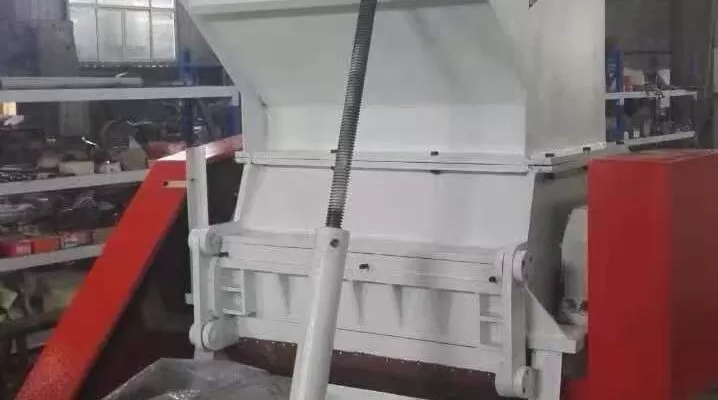Is your workshop overflowing with plastic scrap? Feeling overwhelmed by the piles of waste taking up valuable space? You’re not alone. This is a common issue for many businesses in our industry. The solution? A reliable plastic grinder to turn that scrap into valuable resources.

So, where can you find a grinder for plastic scrap recycling? It involves understanding your specific needs, exploring various sources, and making informed decisions. Let’s dive into the details to help you find the perfect grinder.
But first, why is finding a quality grinder such a challenge? The market is flooded with options, and not all of them live up to their promises. That’s where we come in to guide you.
What Are Your Needs?
Before you start your search, it’s crucial to understand what you need. Not all grinders are the same. Some are built for light-duty tasks, while others are made for heavy-duty industrial applications.
Consider the type of plastic scrap you’re dealing with. Is it primarily PET bottles, PVC pipes, or a mix of various plastics? Different grinders specialize in different materials. Identifying your specific needs is the first step toward finding the right machine.
Research Online
The internet is a vast resource. Begin with a simple search like “best grinders for plastic scrap recycling.” You’ll encounter numerous reviews, articles, and forums. Be cautious of overly promotional content. Look for genuine user reviews and detailed case studies to get a real sense of a machine’s performance.
Websites such as Alibaba and Made-in-China are excellent starting points to find manufacturers and suppliers. They offer a wide range of products and often feature customer reviews. However, always do your due diligence to verify the authenticity of the reviews.
Attend Trade Shows and Expos
If you prefer hands-on experience, trade shows are invaluable. Events like the Plastics Recycling World Exhibition and the ChinaPlas Exhibition are ideal for discovering the latest in plastic recycling technology.
At these events, you can see the grinders in action, speak directly with manufacturers, and negotiate deals. There’s no substitute for seeing a machine perform live and interacting with knowledgeable representatives.
Seek Recommendations
Don’t underestimate the power of word-of-mouth. Talk to industry peers, colleagues, and other professionals who have already navigated this process. They can offer insights and direct you to reliable suppliers.
Often, the best leads come from unexpected conversations. Keep your network active and engaged. You never know where the next great recommendation will come from.
Explore Local Suppliers
It’s tempting to go straight to international suppliers, but don’t overlook local options. Local suppliers can provide quicker turnaround times, easier communication, and better after-sales support. Plus, visiting their facilities in person can be highly beneficial.
Check local business directories or industry associations for recommendations. Local doesn’t always mean inferior; it often means more personalized service.
Evaluate Potential Suppliers
Once you have a list of potential suppliers, it’s time to evaluate them. Here are some key factors to consider:
- Quality: Inspect the build quality and materials used. A robust machine will last longer and perform better.
- Capacity: Ensure the grinder can handle the volume of plastic scrap you process.
- Customizability: Can the grinder be customized to meet your specific needs?
- Certification: Check for certifications and compliance with industry standards. This ensures safety and reliability.
Compare Price vs. Value
While it’s tempting to go for the cheapest option, remember that you often get what you pay for. A low-cost grinder might save you money upfront but could cost more in the long run due to maintenance, downtime, and inefficiency.
Focus on value rather than just price. Consider the total cost of ownership, including maintenance, spare parts, and potential downtime.
Make the Purchase
Once you’ve narrowed down your options, it’s time to make the purchase. Ensure you have a clear contract outlining the terms of sale, warranty, and after-sales support.
Negotiate the best deal, but don’t compromise on quality. A good grinder is an investment that will pay off over time.
Installation and Training
After purchasing your grinder, proper installation and training are crucial. Many suppliers offer installation services and training for your staff. Take advantage of these services to ensure your grinder operates at peak efficiency from day one.
Regular Maintenance and Support
Regular maintenance is key to keeping your grinder in top condition. Work with your supplier to set up a maintenance schedule and ensure you have access to spare parts and technical support.
A good supplier will offer comprehensive after-sales support, including regular check-ups and emergency repairs.
Conclusion
Finding the right grinder for plastic scrap recycling isn’t just about buying a machine. It’s about finding a partner who supports your business and helps you achieve your goals. By understanding your needs, researching thoroughly, and evaluating suppliers critically, you can find the perfect grinder to transform your plastic scrap into valuable resources.
Ready to start your search? Begin with a clear understanding of your needs, leverage both online and offline resources, and don’t rush the decision. The right grinder is out there, and it’s worth the effort to find it.
That’s it. Happy grinding!
